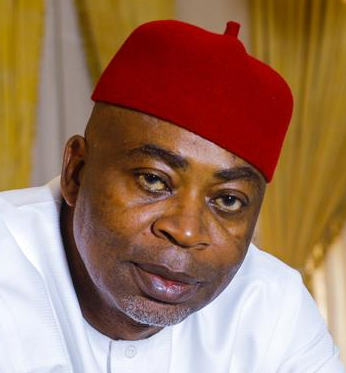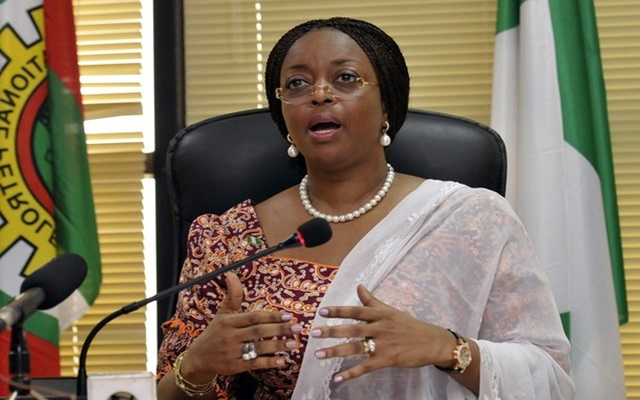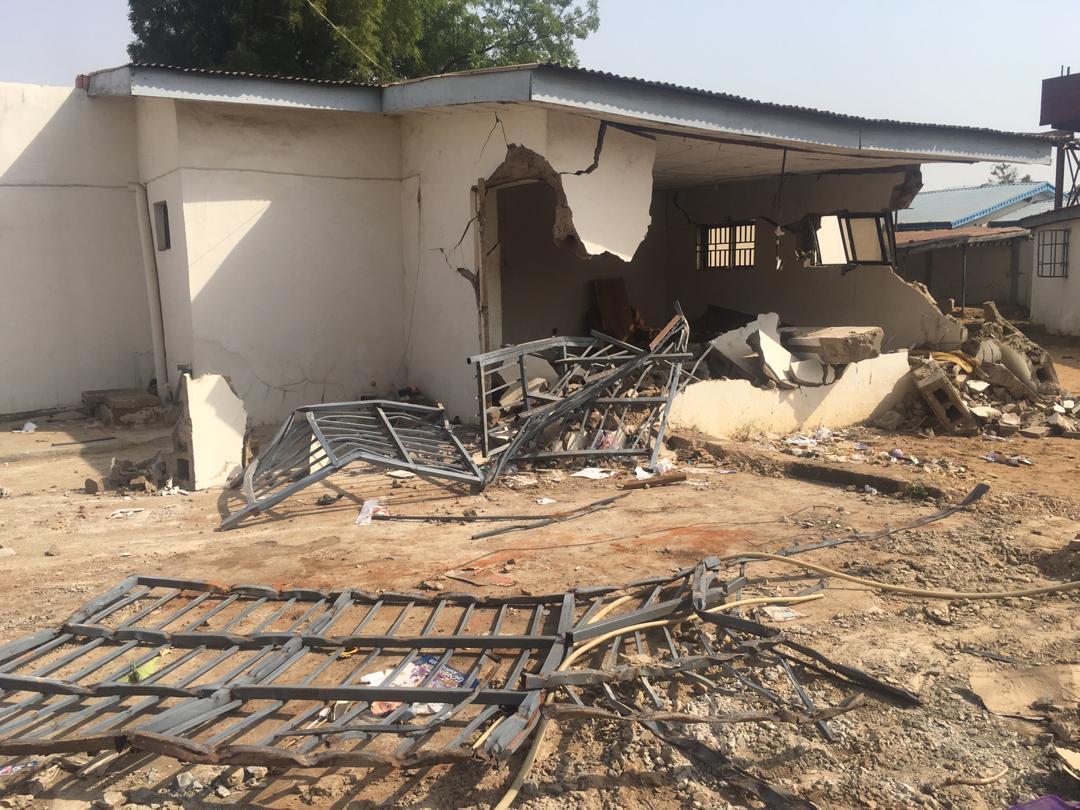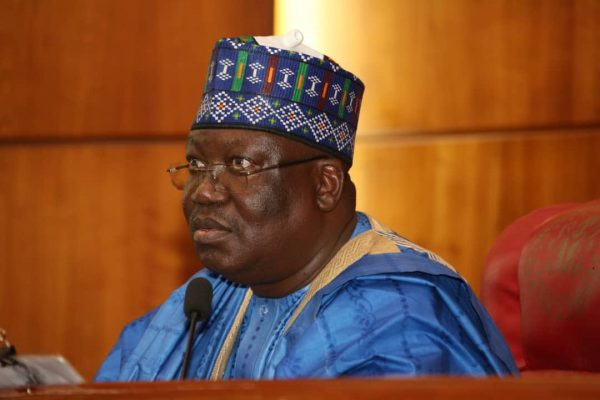As many of us return from the Christmas and New Year celebrations, it is quite predictable that our experiences on Nigerian roads are still a major talking point. Road transport remains the primary means for freight and passenger movements across the country and has assumed even a more significant role since the collapse of the rail system these past decades. The utilisation of our inland waterways as a viable means of transportation remains untapped, while air travel has become largely an exclusive for the elite and upper middle class. Even then, the roads still lead us through the last mile, hence account for about 95 per cent of all modes of transport.
While there are various statistics on the true conditions of our federal, state, and rural roads, there is a consensus among Nigerians that our roads infrastructure is generally in a deplorable condition. I was privileged to chair the Committee on Works in the 8th Session of the House of Representatives. As a Committee, we traversed the length and breadth of Nigeria and one can authoritatively say that the problem of road infrastructure is not restricted to any particular region of the country. It is also not essentially about who occupied what position. It is self-evident that even presidents are not able to help themselves. A journey from Lagos to Ota, a journey to Otuoke and through the East-West road, a journey from Kano to Katsina or a journey from Suleja to Minna will convince any doubting Thomas. So, it is a systemic, structural, nationwide problem.
Expectedly, this parlous state of our roads takes heavy tolls on the nation. With an estimated Vehicle Operating Cost of about N500 Billion annually, the burden of inaction, in Naira terms, is estimated to be as much as 5:1, while the losses in man-hours could be as much as 10 billion hours per year. At a minimum hour rate of N100, therefore, the cost of loss in man-hours can be as much as N1.02 trillion. And this does not include the impact on the economy, especially in the agriculture sector where costs occasioned by delays, disruptions, and destructions incurred in moving produce from farms to markets are high. Or the direct effect on the manufacturing and logistics industries and to our wellbeing – debilitating injuries and fatalities.
Unfortunately, hopes of any improvements under the current arrangement dim when it is considered that whereas our national expenditure on roads ought to be at least 3.0% of the Nigeria’s Gross Domestic Product (GDP) per annum, it has been just 0.5 percent to 0.1 percent because funding the roads sector has been strictly through fiscal allocation and we are now constantly confronted with the stark realities of dwindling resources for appropriation and diminishing expenditures in terms of actual budgetary releases.
Advertisement
Our experience as Committee on Works in the 8th House of Representatives and indeed as a parliament is that the deficit in the quality of our roads continues to widen despite our best efforts, working with the Executive through the Ministry and the Presidency, to appropriate resources to our roads. It is even almost impossible to contemplate new federal highways. Not when capital allocations to the roads always hover around N200 Billion, which is a tiny drop of water on a parched land when we consider that FG awarded road contracts already amount to over N4 trillion, while FG liabilities on completed portions stand at N306 Billion. Worse still, much of the annual budgetary allocations is never released due to paucity of resources. For instance, of the N220 Billion allocated to Works in the 2019 Budget, less than N70 Billion was released. It is that bad.
To diagnose and properly address the multi-faceted problems, the 8th House of Representatives Committee on Works set up a multi-stakeholder technical panel comprising representatives of 27 agencies/organisations, including the Federal Ministry of Power, Central Bank of Nigeria, Ministries of Finance and Justice, Bureau of Public Enterprises, Nigerian Institution of Highway and Transportation Engineers, Nigeria Infrastructure Advisory Facility, National Institute for Policy and Strategic Studies (NIPS), Federal Roads Maintenance Agency (FERMA), Nigerian Association of Road Transport Owners (NARTO), Federal Inland Revenue Service (FIRS), Petroleum Products Pricing Regulatory Agency (PPPRA), Federal Road Safety Corps (FRSC), Nigeria Economic Summit Group (NESG) partnering with the UK Department for International Development (DFID), National Assembly, and, in fact, every organisation that has or would have anything to do with our roads. We mandated them to give us something that would work for Nigeria, looking also at other jurisdictions. At the end of its widely consultative work, which won an NESG award that year, it became very obvious that Nigeria needed a fundamental paradigm shift, a rethink of our approach to keeping our roads in good condition to sustain economic growth and development.
It is against this background that the current Session of the House of Representatives considered and passed two very important Bills before the Christmas and New Year break to reform the management of the roads sector. The first is the Federal Roads Bill. It will create an appropriate and structured framework for the ownership, management, and development of our federal roads as obtainable in other economies with better quality and well-maintained road infrastructure. A major highlight of the Bill is the creation of the Federal Roads Authority (FRA) from the current FERMA, but with an enhanced mandate that transcends road maintenance to include road construction, road rehabilitation, road network planning, and technical regulation of road asset design and specification. This Bill is consistent with global practice and will strengthen the role of the Federal Ministry of Works & Housing in the roads sector.
Advertisement
So, if this Bill becomes law, Nigeria will gain from the benefits accruing from such agencies around the world like the Highways England, National Highway Authority of India, South Africa National Roads Agency SOC Limited, and Federal Highway Administration in the USA. Other countries in Africa like Benin, Ethiopia, Ghana, Malawi, Tanzania and Zambia have also established independent road agencies.
The proposed FRA will manage the federal roads network to keep it safe and efficient, meeting our socio-economic demands, promoting the sustainable development and operation of the road sector, and facilitating private sector participation in the development, financing, maintenance, management, and improvement of roads in Nigeria that may require road concession contracts and other forms of Public Private Partnerships (PPP). It will also plan and manage the development of road safety technical designs and standards, in addition to advising the Federal Roads Safety Commission (FRSC) on appropriate and effective methods of enforcing road traffic legislation for the purposes of promoting road safety and preventing damage to roads.
Several technical publications often cite the statistics that for every additional $1 a developing country spends on road maintenance, road users save $3. Thus the second Bill – the National Roads Fund Bill – creates an independent fund that addresses the inadequate levels of funding, funding unpredictability, and irregular allocation from the government to road management, which makes planning for maintenance difficult and irresponsive to private sector development. Perennial inappropriate funding for road infrastructure management leads to delayed or insufficient maintenance of roads, which in turn leads to the premature failure of road assets and increased costs of construction and maintenance.
At the core of the Road Fund solution, therefore, is the concept that some of the insufficiency and unpredictability of funding (and by extension, planning) can be mitigated through additional funds from those that use the road assets in the form of a user-based charge or levy. The proposed National Roads Fund involves the utilisation of a “User-Pay” model that stipulates the aggregation of a token fuel levy and other revenues, including tolls, derivable from road users directly to a Fund managed by a Board representing users’ interests. The National Roads Fund will be disbursed to the federal and state governments for routine preventive maintenance through their road agencies, which must be established by law with a dedicated account for that purpose as required by the Bill. About 26 countries in Africa have established such Road Funds and it is the practice in other countries like India, Pakistan, USA, Japan, New Zealand, United Kingdom, Poland, Croatia, Bulgaria, and Moldova.
Advertisement
Fortunately, feelers we get from Nigerians, from the everyday users of our roads, from the interstate commercial transporters to owners of private cars and even the motorcycle ‘Okada’ and tricycle ‘Keke’ riders indicate a willingness to embrace the reforms proposed in these Bills and in turn hold the government more accountable. Indeed Nigerians are not averse to tolling of well-built or even concessioned roads. Opportunity cost of our decrepit roads to the road user, including wear and tear of vehicles, exposure to risks like kidnapping, robbery attacks, accidents, etc. is so huge. Nigerians are, therefore, ready to pay a N500 toll to travel safely and conveniently from Abuja to Kano, for instance, than to be kidnapped, robbed, stranded and probably sleep or even lose their lives on dilapidated roads.
Also related to this are the positive consequential effects that the road sector reforms will have on unemployment. Despite the plethora of road construction contracts, Nigerian engineers and other related professionals are not gainfully employed because road contracts have short terminal dates. So, it is road maintenance that creates sustainable employment. For instance, a single Trunk A road under concession could employ over a hundred civil engineers, safety engineers, soil engineers, administrators, etc. for over 30 years, which is nearly their active working lives.
Meanwhile, I am happy with my colleagues for approving the amendments to the Council for the Regulation of Engineering in Nigeria (COREN) Act, which was signed by the President in 2019 as part of the three-pronged approach to the issue of capacity, funding, and governance. With the amendments, the COREN Act has now substantially addressed the issue of capacity by institutionalising internship or experience by our engineering students to build their to deal with issues in that sector. That way, they are ripe and easily assimilated on graduation. It also now integrates local content into the operation of the engineering firms and makes construction companies part of the Council.
For me, therefore, it has been a great privilege sponsoring these Bills, drawing motivation from my experience in the Works Committee. I appreciate my colleagues for seeing the urgent need for Nigeria to be forward-looking and proactive in road sector reforms and to adopt pragmatic, enduring, and viable approaches as well captured in the Federal Roads Bill and National Roads Fund Bill.
Advertisement
It is heartwarming that President Muhammadu Buhari has never hidden his concerns over the state of Nigerian roads. Therefore, we earnestly look forward to his assent to the Bills when concurred by the Senate, as they are in tandem with his fervent aspiration to comprehensively tackle the challenge of Nigeria’s derelict road infrastructure, for it is indeed an auspicious for the Legislature and Executive to champion a paradigm shift through effective and sustainable frameworks for quality roads for all Nigerians.
Rt. Hon. Okechukwu is deputy minority leader, house of representatives and former chairman, house committee on works.
Advertisement
Views expressed by contributors are strictly personal and not of TheCable.
Add a comment







